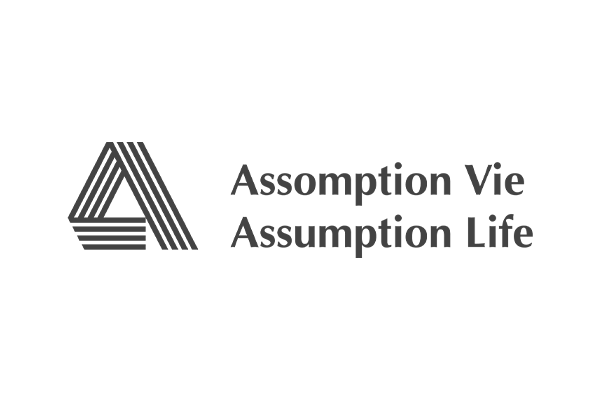
Investments
It's never too soon to begin investing for your future.
“I would 100% recommend David. He is extremely knowledgeable and was able to answer every question that I had.”
Trusted by
Maximize Your Wealth
Investing isn't just about saving; it's about actively growing your wealth. By investing early and consistently, you set a foundation for long-term financial growth beyond mere savings.
At WealthTrack, we understand the power of investment. We're here to guide you, offering tailored advice that aligns with your unique financial needs and goals, ensuring your money works as hard as you do to build your future.
How it works
1. Discovery Meeting
Initial meeting where we understand your financial goals, risk tolerance, and investment preferences.
2. Strategy Development
Based on your financial objectives, we’ll craft a personalized investment strategy tailored to your needs.
3. Implementation and Monitoring
Your investment plan is put into action, and it’s is regularly reviewed and adjusted as necessary.
Investing is about using the right combination of risk, return, and time to meet your financial goals.
Retirement planning is the process you take to ensure that your future self is ready to enjoy retirement and meet the lifestyle goals you set for yourself. Each person's retirement goals will differ, and your plans may change over time. Ultimately, you are looking for ways to create reliable income.
The best retirement plan allows you to meet or exceed your long-term financial goals with the lowest amount of risk.
Discover the similarities, differences, and potential of both TFSAs and RRSPs by checking out our article, How to Effectively Use Your TFSA and RRSP
Ways to Invest
In Ontario, there are different types of investments you should make, depending on your goals and situation.
RRSP - Registered Retirement Savings Plan - Your RRSP may form the backbone of your income in retirement. RRSPs offer tax advantages when you put money in and will grow tax-deferred until you withdraw.
RESP - Registered Education Savings Plan - If you're saving to help your children pay for College or University, an RESP can help. RESPs provide tax-free growth and grants that boost your savings.
TFSA - Tax-Free Savings Account - Your TFSA can be a key component of your investment strategy. TFSAs can hold many kinds of investments (not just savings accounts) and offer tax-free growth with no income taxes on the withdrawal.
LIRA - Locked-In Retirement Account - You may need to set up a LIRA if you change jobs and take your employee pension with you. A LIRA is locked in, meaning you cannot withdraw before retirement, but you can choose what investments are held inside your account.
Non-registered accounts - Many investments are non-registered, meaning there is no tax advantage when you deposit or withdraw from them. Non-registered investments are flexible, with no limits or maximums on your investment amount and a wide range of assets to choose from.
Want to learn more? Click to read frequently asked questions about investing.
At WealthTrack, the same person who will help you tomorrow will help you today
Your best investment strategy is all about making good use of the available options. We help Canadians with advice on investments that fit your comfort level, return expectations, and time horizon.

Hear firsthand how WealthTrack can provide peace of mind and financial security to our valued clients.
“David has the ability to take a stressful and intimidating situation and completely streamline and simplify it. His patience and level-headed nature lend itself perfectly to helping make those crucial life-choices. In a sea of uncertainty, David is someone I definitely want on my side.”
“What standout the most when dealing with David is his transparency and how much he cares to provide the best for his clients no matter what. His tips and advices are amazing and he makes sure to provide the proper financial education to his clients based on their situations. I highly recommend using David Pipe services!!"
Feel Confident with Advice from a Licensed Professional
A proven process to help you get there. It all starts with a foundation of understanding your needs and goals first.
Knowledge and expertise to help you clean up all the clutter of information and make things clear so that you can make the best choices.
The ability to choose from a comprehensive set of options that are tailored for your goals.
I’d be happy to help
I work for you to compare dozens of choices and providers to get you the best value.

Frequently Asked Questions About Investing
-
The best time to start investing is as soon as you can. Ideally, start as early as your financial situation allows, even with small amounts. The earlier you begin, the more you can benefit from compound interest and long-term market growth. However, ensure you have a basic emergency fund in place and understand your investment options before starting.
To learn more, check out our article: When Should I Start Investing?
-
Yes, but prioritize high-interest debt repayment first, as the interest may outweigh potential investment returns. Once manageable, you can start investing while still paying down low-interest debt.
-
Start by tracking your income and expenses to understand your spending habits. Allocate a portion of your income to savings and investments before covering non-essential expenses. Adjust your budget as needed to meet your investment goals.
To learn more, check out our article: How to Make a Budget
-
Consider your financial goals, risk tolerance, and investment timeline. Diversify your portfolio across different assets for balance. Consulting a financial advisor can also help tailor a strategy to your needs.
-
When choosing a financial advisor, look for someone with relevant qualifications and experience that match your financial goals. Ensure they are trustworthy, with a good track record, and ask for references. Consider whether you prefer someone local or are comfortable working remotely. Discuss their fee structure to understand how they are compensated. Finally, ensure you feel comfortable communicating with them, as a good advisor should listen to your needs and provide clear, understandable advice.
To learn more, check out our article: How to Choose a Financial Advisor
-
Rising interest rates can reduce the value of bonds and affect stock prices negatively. However, they can benefit savings accounts and fixed-income investments. Understanding the relationship can help in adjusting your investment strategy.
-
Stocks represent ownership in a company and may offer higher returns compared to bonds, but they come with higher risk. Bonds, on the other hand, are like loans to the government or companies that pay you back with interest, generally offering more stable and lower returns. Balancing both can help diversify your investment portfolio.
Talk to your financial advisor about your financial strategy.
-
Newcomers should start by getting familiar with the Canadian financial system, understanding registered accounts like TFSA and RRSP, and consider speaking to a financial advisor to create an investment plan that aligns with their goals and timeline.
To learn more, check out our article, Financial Tips for Newcomers in Ontario
-
ESG investing stands for Environmental, Social, and Governance investing. It's a strategy where you choose investments based on a company's ethical practices and sustainability measures, alongside traditional financial analysis. This approach can align your portfolio with your personal values, potentially reduce investment risks, and contribute to positive social and environmental outcomes.
To learn more, check out our article: What Is ESG Investing?
















